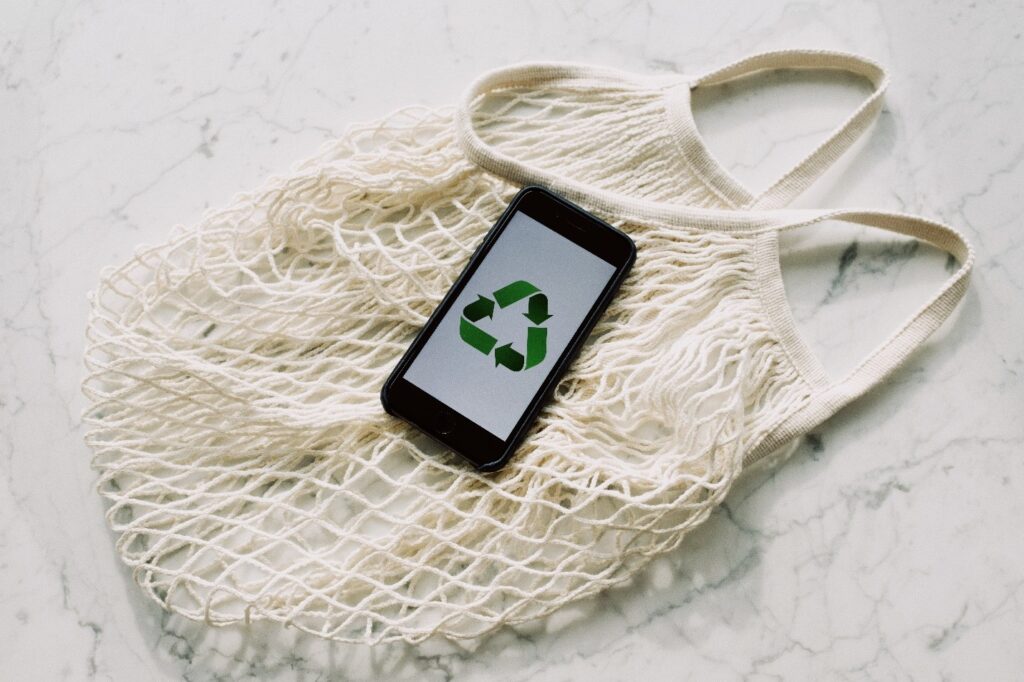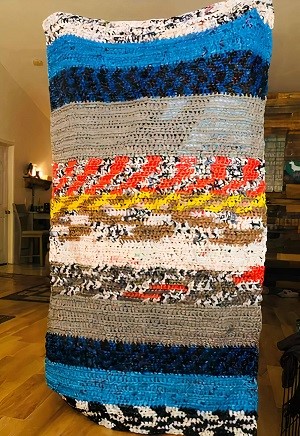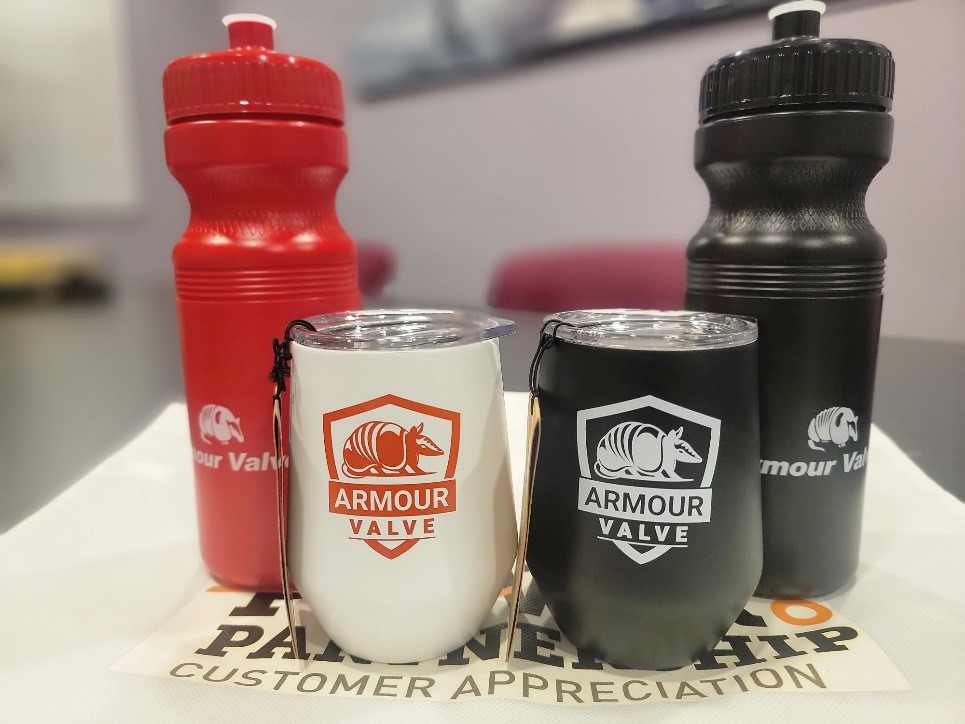
Promotional products enable businesses to increase brand awareness and strengthen connection with the brand. They can also be produced, consumed, and disposed of in ways that do not respect the planet or people.
According to a 2019 Global Ad Impressions Study by the Advertising Specialty Institute, “just 21% of branded and promotional items are kept for any length of time. More than half is given away, and 23% is thrown away.” With such a large percentage of promotional items ending up in landfills, it is vital that companies reconsider their strategy when it comes to branded merchandise to minimize their impact on the environment.
The UN defines sustainability as “meeting the needs of the present without compromising the ability of future generations to meet their own needs” and includes addressing environmental, social, and economic concerns in its Sustainable Development Goals. In addition to environmental criteria, companies committed to sustainability should factor social and economic considerations into the buying decision for promotional products.
Tips for Adopting a Sustainable Promotional Products Strategy
Armour Valve’s social purpose team recently completed the United Way’s Social Purpose Implementers program and has begun evaluating how to live our purpose of transforming infrastructure for a healthy, thriving planet. As a company committed to environmental and social sustainability, we recognize the importance of buying with impact and greening our promotional products. We are pleased to share the following lessons learned from our own experience.
Take Stock of Your Current Inventory
We began our journey by assessing our current inventory of promotional products. This allowed us to gain a clearer understanding of our stock and identify which items did and did not align with our purpose and sustainability goals.
Going forward, we decided to take a highly selective approach to choosing which items will carry our brand. When selecting products, we will carefully consider their intended use to ensure that they align with our purpose and sustainability goals and are likely to be valued and used by the recipient.
Reuse, Recycle, Repurpose
Instead of simply discarding the items that we will discontinue, we explored ways to repurpose them. Through community partnerships, we were able to donate paper folders for use at not-for-profit organizations and schools in need of supplies, plastic bags to create sleeping mats for the homeless as well as donating lanyards for an educational and professional development conference focused on education, technology, and employment for people who are blind or partially sighted. This represents 262 lbs of solid waste diverted from landfill.
Here are some additional suggestions to consider for repurposing discontinued promotional products:
- Create an employee swag bag of practical items they can use
- Donate clothing items to local charities
- Donate items such as pens, binders and notebooks to organizations in need of supplies for schools and kids in impoverished areas
- Donate drinkware to homeless shelters or organizations supporting families needing assistance
- Donate electronic swag to schools or organizations such as the Electronic Recycling Association
Bags to Sleeping Mats is a group that uses plastic bags to make sleeping mats for the homeless. The sleeping mats made from plastic bags provide an easy to clean, insulated layer for the homeless. We were happy to support Bags to Sleeping Mats’ mission by making a large donation of single-use branded plastic bags to make mats for the vulnerable. If you would like to volunteer and make sleeping mats or donate plastic bags, visit their website to learn more about their mission.

Photo Credit : Bags to Sleeping Mats
If you would rather be a bit more hands off, companies such as SwagCycle and Brands for Canada also make it easy for organizations to repurpose, recycle and donate their obsolete branded merchandise in a suitable way by collaborating with charities and recycling partners.
Buy with Impact
 What constitutes a sustainable product? Hive Brands describes a sustainable product as one that provides environmental, social, and economic benefits throughout its lifecycle without depleting resources. When selecting promotional products, consider choosing materials that are biodegradable, recycled and/or recyclable and items that can be reused, such as:
What constitutes a sustainable product? Hive Brands describes a sustainable product as one that provides environmental, social, and economic benefits throughout its lifecycle without depleting resources. When selecting promotional products, consider choosing materials that are biodegradable, recycled and/or recyclable and items that can be reused, such as:
- Recycled Fabrics – These are manufactured from recycled cotton and recycled Polyethylene terephthalate (PET) material.
- Natural Materials – Materials such as bamboo, wood, wheat straw and hemp are biodegradable.
- Reusable Products – Water bottles, straws, recyclable bags, travel mugs and clothing are reusable.

Reusable products include water bottles made from recycled plastic and tumblers manufactured by MIIR.
Beyond the material, consider the conditions under which the promotional products were manufactured. Does the vendor have a purpose other than profit? Is it transparent about its social and environmental performance? Choosing manufacturers that are B-Corp certified, social purpose businesses or social enterprises and whose purpose and values align with yours is a great place to start.
Working with suppliers that share your values can help ensure that your promotional products are as planet and people friendly as possible. Fairware, Promo Leaf, and Image Group are examples of companies that prioritize sustainability and can serve as a valuable resource for those seeking sustainable promotional products.
Embracing Sustainable Promotional Products
By adopting a sustainable promotional products strategy, any business can reduce its environmental impact and align its marketing efforts with its purpose and sustainability goals. As we continue on our purpose journey, Armour Valve has opted to take a purposeful approach to the promotional products we stock. We believe in quality over quantity, and whenever possible, we are opting for gifting experiences instead of traditional promotional items. We also look for opportunities to support causes that align with our values.

